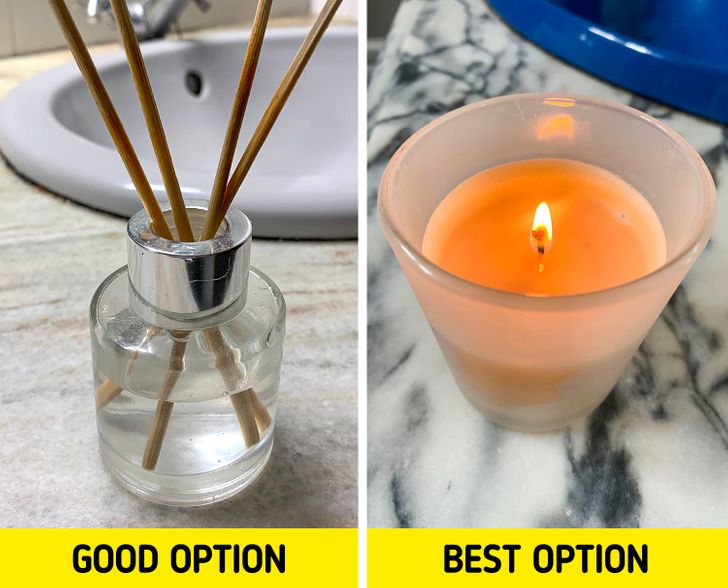15+ True Life Stories With an Unexpected Finale That Deserve a Movie

You’ve probably encountered a smell that triggered a memory or a strong feeling. Maybe the scent of fresh grass reminded you of outdoor adventures from your childhood, or a waft of a certain perfume made you think of a loved one. Fragrances are very powerful tools that activate memories and emotions, and they also have the ability to affect our mood and health.
Bright Side would like you to have a pleasant sensory experience, so we listed which aromas work best for each part of the home. We also threw in a bonus point that clarifies the long-standing myth about whether or not onions are a good scent for our rooms.

One of the first things that guests notice when they enter your house is its smell. Make a good first impression by using interesting scents that transition well from the outdoors, like sandalwood, agarwood, vanilla, and cinnamon.
Woody scents also have a calming effect on people, and they help promote positive emotions. You can also adjust the welcoming aroma depending on the season — lighter and floral scents for spring and summer, and spices and wood musks for fall and winter.

One study found that strong perfumes triggered headaches in nearly 76% of the respondents, so it’s better to stick to subtle and comfortable scents in the living room since this is the area where people linger the most.
Floral fragrances, such as peony, jasmine, and rose, will create a soft and refreshing atmosphere without irritating our nostrils. However, you can spice up the ambiance during parties or special occasions by going for whiffs of tropical fragrances and fruit-based smells, like berries and pumpkin spice.
Experts advise staying away from floral scents in the kitchen because they can get in the way of food’s mouthwatering aromas. Choose fruity smells that blend well with your culinary masterpieces instead, like apple, orange, and cantaloupe.
Citrus scents are also effective at masking the stench from the trash and the drain. You can make your own homemade citrus brew by simmering lemon or orange slices and mixing it with herbs like lavender and mint.
Avoid strong smells that overpower the meal’s flavors and go for scents of herbs and spices. Rosemary, lemongrass, honey, and citrus perfumes are your best bets here.
You can also make your own potpourri by drying herbs like thyme, bay, and sage.

Oil and reed diffusers are convenient and effective tools, but using scented candles in the bathroom can help enhance your bathing experience. The warm glow helps promote relaxation and sets the overall mood.
Turn your bathroom into a sanctuary and create a relaxing, spa atmosphere by using natural scents, like rose and pine. For a more luxurious feel, try creamy smells, like coconut and vanilla.
One study found that aromatherapy can help you get a good night’s sleep and treat insomnia. Lavender is the most popular essential oil for sleep and relaxation, and its calming properties also help with anxiety.
Other soothing bedtime scents include rose, jasmine, and citrus. For romantic occasions, you can use creamy and musky fragrances, like coconut and vanilla.


Researchers from Northumbria University found that the smell of peppermint stimulates mood and cognition, and it helps improve memory and alertness. Meanwhile, sage, ginseng, lemon balm, and ginkgo biloba are smells that help with mental performance.
The scent of coffee can also be an effective energizer. Other fragrances that help with productivity include jasmine for increased energy, rosemary for muscle pain relief, and cinnamon for enhanced concentration.

The idea of using onion as a folk remedy has been around for a long time. The belief is that a cut onion placed inside the room helps prevent the flu and other viruses because it absorbs germs or toxins in the air.
Unfortunately, there is no truth to this claim, and even the National Onion Association emphasizes that there is no scientific evidence that proves that raw onion cleans the air. Maybe it’s best to stick with the scents recommended for each room and leave the onion in the kitchen where it belongs.
What scents or perfumes do you use in your home? What tips would you give to help keep our rooms smelling fresh and fragrant?











